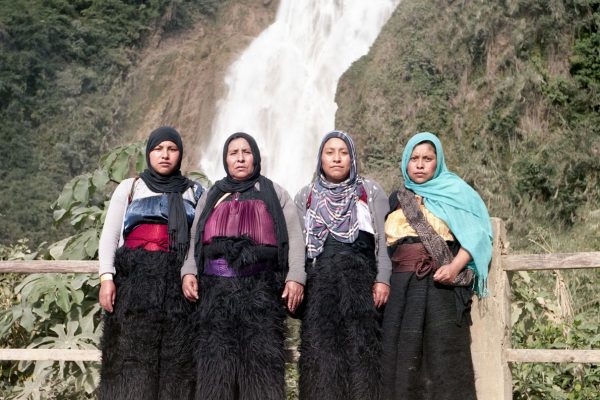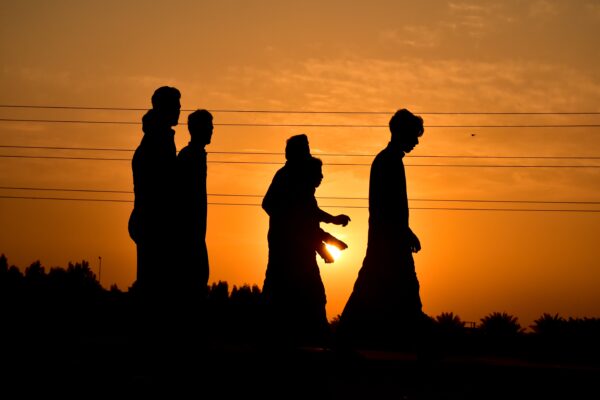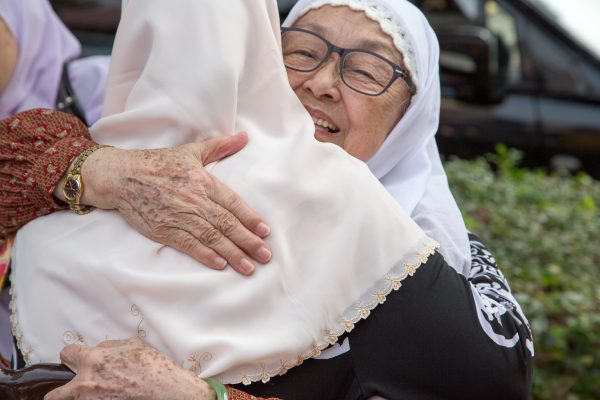The treatment of Muslim converts leaves a lot to be desired. Here are some of the challenges they face and how we can help them.
The treatment of Muslim converts leaves a lot to be desired. Here are some of the challenges they face and how we can help them.
People new to Islam are not getting the support to grow and excel in their faith. As born Muslims, we have the responsibility to help new Muslims integrate within our respective communities.
Islam is the fastest-growing religion in the world. An increasing number of people accept the message of Prophet Muhammad (pbuh) and are joining the religion in large numbers.
As the revert community gathers momentum, we need to have a framework to guide them, especially immediately after converting.
There is much excitement when someone meets a convert. We want to know their ‘story’ and ‘journey’ – but what happens after that? Many converts are almost forgotten about once the euphoria wears off.
Muslim Conversions: The full story
There is a hidden story behind the number of conversions around the world. Usually, the conversion stats are quickly mentioned but not so much what happens after.
Take America’s example: 100,000 people join Islam on an annual basis – roughly 270 people per day. Unfortunately, statistics suggest that 70,000 of these will either leave Islam or remain Muslims but not practice the religion. Furthermore, the chance a Muslim convert of five years or fewer will not be practising Islam within the next five years is high (source: Pew Research Centre and Imam Luqman).
This is a disserve to converts, and it’s up to us to make them feel welcomed.
TMV recently ran a series of polls on its social media channels to gather a snapshot of the issues reverts/converts face. We wanted to hear from the converts themselves about their challenges and the support they need. Here’s what we found.
Poor treatment of converts
Almost half of all reverts who took part said they had experienced some form of discrimination or poor treatment. Some of these are as follows.
Marriage
New Muslims feel an unwillingness from the community to give their children’s hand in marriage. Marriage proposals are rejected because converts are from different cultures. Such thinking is not aligned to Holy Qur’an which says:
O you mankind, surely We created you of a male and a female, and We have made you races and tribes that you may get mutually acquainted. Surely the most honorable among you in the Providence of Allah are the most pious; surely Allah is Ever-Knowing, Ever-Cognizant.”
(49:13)
The verse clearly states different races and tribes are to be mutually acquainted with one another – in business, friendship and marriage. The verse also stipulates piety is the only thing that discerns one person from another.
Sexual Abuse
It is sad to see new Muslims, particularly sisters become victims of sexual abuse. Men in the community take advantage of their naivety and lack of understanding of Islamic rulings to coerce them into certain acts in the supposed name of Islam.
Such behaviour is gross misconduct and in severe opposition to Islamic teachings. Verse 34 of Surah Nisa clearly instructs men to be the maintainers/protectors of women. Such a terrible experience can cause one to leave Islam but, more importantly, scar and traumatise an individual for a lifetime.
Ill Judgement
Before their conversion, the new Muslim had been living a particular lifestyle. After embracing Islam, there is a willingness to adapt to an Islamic lifestyle, but that does not come without its challenges. Converts want to practice Islam but not let go of their cultural and ethnic identity.
Instead of being helped with these challenges, some are judged, marginalised and undermined altogether. Some are viewed as converting for the wrong reasons (i.e. for marriage), others are victims of suspicion, and some report being treated condescendingly – as if they know nothing about Islam.
Ill-treatment damages someone’s enthusiasm toward Islam and leads to feelings of loneliness and isolation.
A Lonely World
43% feel lonely and isolated, post-conversion and a similar number do not feel supported by their local mosque. If a new Muslim doesn’t experience any harassment, the loneliness often puts them in an awful place.
Interactions with born Muslims leave them not wanting to integrate into the community. Almost half said they feel pressured into telling their story. A convert’s story to Islam is very personal, and many do not feel comfortable sharing it with relative strangers.
Converts are asked if they are praying or wearing the hijab properly – nobody stops to ask how they are feeling. It’s very easy to tell someone to perform the wajibaats but rarely do people possess the empathy to appreciate the struggle it can be to balance one’s identity with their new Muslim identity.
At the commencement of his Prophethood, the Holy Prophet did not begin with teaching rituals. At that time, all Muslims were converts, and there was an appreciation on the Prophet’s side to slowly transition them towards the Islamic lifestyle. Today, Muslims need to seek inspiration from the Prophet’s sunnah of welcoming reverts to help new Muslims adjust.
Social exclusion and a lack of acceptance turn our brothers and sisters away from the mosque – 14% have considered leaving Islam altogether due to these challenges.
This is unacceptable. It is our responsibility to ensure that anyone who joins Islam remains within the fold of the religion. We have to show them the beauty of the religion through the life of the Prophet, his family and companions.
In Their Own Words
We bring to you select comments left by converts to illustrate the extent of the issue.
“Everyone wants to hear our story, and that’s basically it. Where do we learn how to pray, where do we learn Arabic? We are told to Google it!”
“We also need to address and acknowledge the abuse that many convert sisters go through, it’s incredibly common to be taken advantage of for your lack of Islamic knowledge. The majority of female converts I know are also SA survivors soon after their conversion. This trauma ultimately takes people away from religion.”
“I refuse to go to my local masjid even though I desperately want to learn to pray properly and learn about Islam. Reverts are treated like they’re dirty. Instead of education, it’s constant put-downs.”
How Can We Help New Muslims?
A change in mindset and approach is required to ensure every convert gets a proper introduction to Islam.
And who better to ask than new Muslims themselves?
Avoiding Wrong Labels
Born Muslims may be surprised to learn over 62% of converts do not want to be called a ‘revert’ or ‘convert’ – they want to be treated like a regular born Muslim. One person said:
“A lot of it is just wanting to be treated just like other Muslims. We don’t really want to be viewed or treated differently.”
Support Groups
After the hijra, the Prophet paired every Muslim that migrated with him (muhajiroon) with a local in Medina (ansar). The purpose was to help every muhajiroon settle into their new home and community.
After stating their shahada, many don’t know what comes next.
Mosques, community centres and individual Muslims need to replicate this system for new Muslims in our community – whether that is a buddy system, revert support groups or formal Islamic classes geared towards new Muslims so they can familiarise themselves with the basic tenets of Islam.
Like anyone, they want to feel welcomed at the mosque and be surrounded by non-judgemental company.
Even the most experienced and veteran Muslim scholar does not have answers to every question, and they spend their lives seeking answers. We can only imagine how many questions those new to the religion have. Making scholars, Imams, and Mufti’s accessible is essential for the growth of a new Muslim and to ensure they don’t fall into extremist practices presented by those who intentionally twist Islamic teachings.
Social Inclusion
Shahr Ramadan and Eid are some of the happiest times for Muslim families. Reverts/converts often spend these alone.
Our findings suggest Muslims would like more invites to iftar or organised public Eid and Ramadan celebrations.
A Safe Space
The support desired by converts is not alien or difficult to understand. It’s only what any human being would want and needs. Above all else, an understanding, non-judgemental and empathetic treatment. One respondent put it perfectly:
“One of the challenges I’ve noticed since becoming Muslim is knowing how to balance my culture and background with what’s “acceptable” to mainstream Muslim culture in society – it can be difficult and confusing for both converts like myself and for other Muslims who don’t really know how to “deal” with us, but I think the best thing to do from both sides is to accept our differences, recognize that everyone is on a learning curve, and come together for our shared love of Allah even if there are some different ways of practising this belief.”
Let’s not forget the sahaba we all look up to were converts. In one sense, the companions have this in common with modern reverts.
We need to re-examine how they were supported by the Prophet and apply those teachings today.





